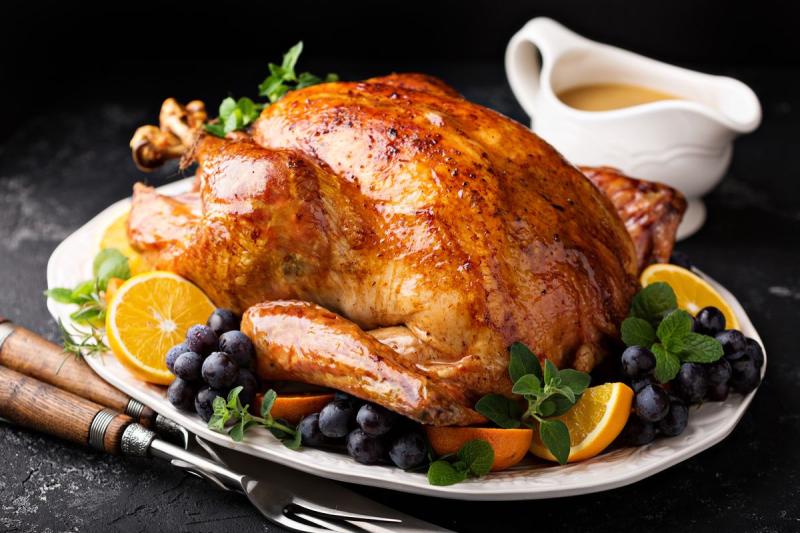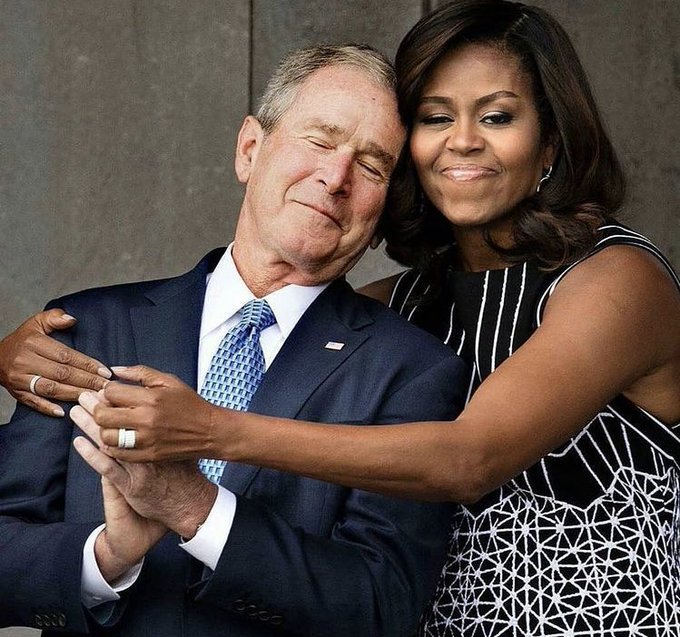‘We Gather Together’ Review: The Nourishment of Gratitude
By: By Brenda Wineapple



As 2020 careens to a close, few will be sorry to bid it farewell. Devastating wildfires, hurricanes, floods and a global pandemic, not to mention America’s divisive presidential election, have been just the highlights of a tumultuous, heart-piercing year. And as we approach the Thanksgiving holiday, we know that we face one unlike any other, with travel plans abandoned, communal meals canceled, families dispersed and in too many cases members mourned.
Perhaps, then, it’s necessary more than ever to be grateful for what we have, or so the bestselling author Denise Kiernan reminds us in her brisk book “We Gather Together.” Suggesting that thankfulness is a state of mind as nourishing as any feast, she declares grace isn’t something we say but bestow: it’s an “active choice.” In fact, many psychiatrists and neuroscientists, she asserts, believe “gratitude practice” good for body and soul. Yet though she summarizes some of the ancient religious and secular customs associated with various thanksgiving observations, she’s writing mostly of the peculiarly American feast, established nationally during the upheaval of the Civil War and proclaimed only weeks before Lincoln spoke at Gettysburg.
A national Thanksgiving holiday had long been championed by Sarah Josepha Hale, a widowed mother of five from New Hampshire, author of “Mary Had a Little Lamb” and editor of several important magazines including Godey’s Lady’s Book, one of the most widely circulated of the 19th century. Ms. Kiernan calls her “a media mogul.”
Born in 1788, Sarah Josepha Buell was educated at home, mainly by one of her brothers. In 1813, she married the lawyer David Hale. He died in 1822, when Sarah was pregnant with her fifth child; for the rest of her life, she dressed in black.
For a time Hale joined her sister-in-law in a millinery shop, but she was also submitting poetry for publication and, backed by friends, published a novel, “Northwood,” in 1827. It includes a description of a New England “Thanksgiving supper,” complete with a large family around a table groaning with such delicacies as roast turkey, sirloin of beef, leg of pork and loin of mutton, goose and a brace of ducks, chicken in puff pastry, pickles, custards and pumpkin pie. Sharing that sumptuous holiday became an abiding passion for Hale.
Soon an “influencer,” as Ms. Kiernan dubs her, Hale was invited to edit the newly established Ladies’ Magazine in Boston. Dispatching her oldest children to live with their uncles, she moved to Massachusetts with her youngest in 1828 and was enormously successful almost off the bat. She broke with custom by stipulating that the magazine print original, mainly American material that hadn’t already appeared in British journals. Before long, she owned part of the magazine. Advocating for women’s economic independence, their marital rights and rights to an education, Hale was also active in civic life. She led a fundraising campaign to complete the Bunker Hill Monument and helped found the Seaman’s Aid Society. In 1836, the Philadelphia publisher Louis Godey invited her to edit his Lady’s Book, where Hale showcased writers like Washington Irving, Nathaniel Hawthorne, Harriet Beecher Stowe and Henry Wadsworth Longfellow.
A traditionalist bent on creating traditions, Hale argued in editorials for the establishment of Thanksgiving on the last Thursday in November, not only “throughout all New England” but “in our sister states.” George Washington, she knew, had proclaimed in 1789 a public day of thanksgiving in honor of the founding of the nation and “for the peaceable and rational manner in which we have been enabled to establish constitutions of government for our safety and happiness.” John Adams had followed suit, though Jefferson considered such proclamations of fasting and prayer to be an “intermeddling” of government with religious institutions.
Thanksgiving had been celebrated intermittently since, by proclamation of this president or that governor, but Hale thought it should be “a grand spectacle of moral power and human happiness, observed, on the same day, throughout all the states and territories,” and petitioned governors as well as presidents Taylor, Fillmore, Pierce and Buchanan. No dice. But when she approached Secretary of State William Seward in 1863, he forwarded her suggestion to President Lincoln, who issued the first national proclamation right away. Still, the Civil War was far from over and there was no unanimity, not even for a moment, and not the next month when Lincoln delivered his poignant elegy at Gettysburg.
Ms. Kiernan admits that the Gettysburg speech and Thanksgiving had nothing to do with each other, but she does yoke them, straining after a comparison. Overall, though, she provides an entertaining historical overview of Thanksgiving. Indigenous peoples had held their own thanksgiving ceremonies for centuries, long before European settlers came to America, Ms. Kiernan points out, but Thanksgiving origin stories grew in mythological weight, often obscuring the protections Native Americans, particularly the Wampanoag of Massachusetts, had offered to the early Pilgrims. In 1885 Dennis Bushyhead of the Cherokee Nation issued a thanksgiving proclamation in gratitude to the Great Spirit while asserting his people’s right to land “sufficient for the needs of generations of Cherokees to come.”
By the 1890s, Thanksgiving was established as a holiday enjoyed by all Americans. In 1918, during the Spanish flu epidemic, quarantines interfered with Thanksgiving celebrations, but in 1920, Gimbel Brothers department store in Philadelphia orchestrated the first Thanksgiving parade. Ms. Kiernan shows how, by the 1930s, Thanksgiving had become entangled with football and the Christmas season. Though Lincoln had established the national observance, an American president would still have proclaim Thanksgiving’s date each year, in practice the last Thursday in November. In 1939 Franklin Roosevelt tried to move Thanksgiving to earlier in the month—it would otherwise have fallen on the 30th, considerably shortening the shopping season and hurting retailers. But the move upset football schedules and school calendars, and the uproar motivated Congress to codify Thanksgiving, establishing the holiday on the fourth Thursday of November.
Sarah Hale had died in 1879 at 90; she didn’t live to see her dream of a national holiday enshrined in law. Doubtless, though, she’d have been thrilled by Ms. Kiernan’s tribute to her and thanksgivings, great and small, religious and secular, civic and personal. For she would understand that whether this year’s Thanksgiving takes place in person with family or in front of a computer, gratitude can surely bring grace, even in troubled times.
—Ms. Wineapple’s most recent book is “The Impeachers: The Trial of Andrew Johnson and the Dream of a Just Nation.”



The book and review comes at a time when American traditions are under attack without precedent.
The book is:
WE GATHER TOGETHER
By Denise Kiernan
Dutton, 293 pages
I think the most appropriate image depicting America's "traditions" came earlier this year at The Villages retirement community in Florida, when 75 and 80 year olds paraded golf carts down the street there in support of President Trump. One of the old fellas, perhaps inspired by a lifelong love of tradition, saw a protester on the side of the road and shouted "White Power".
I think everyone in America has something to be thankful for, but not equally so.
For the record American traditions are to be revered, not demeaned.
Sorry, John, Thanksgiving is a time to celebrate family, home and all that unites us as one nation.
There are good traditions and bad traditions. White power is a bad tradition. Whites claiming to be the real victims of racism, a staple during the Trump era, is a bad tradition.
You associate that with Thanksgiving?
I find that astounding!
Vic, your whole schtick is to claim that things were better "back in the day". In this case, the 1800's. That is highly debatable.
I have nothing against Thanksgiving, but it doesnt celebrate anything that is unique to America.
Actually it does (that is before we had progressives dividing us).
How does that tripe from far left NPR relate to Thanksgiving?

John, Thanksgiving is days away. If you need to inject politics, take your cue from the establishment:
Vic, when the old guy shouted "white power" at a protester he took to be supporting Black Lives Matter, do you think that old guy believed he was expressing his understanding of "tradition" ?
I can't speak for what is in the minds of random individuals, but I don't think politics is a part of Thanksgiving.
This is how you started your seed
That IS a political statement.
It is a fact and you ironically came on board and proved it.
You are talking about George W and Michelle?
I agree.
Kind of stilted, but like you say, a nice pic.